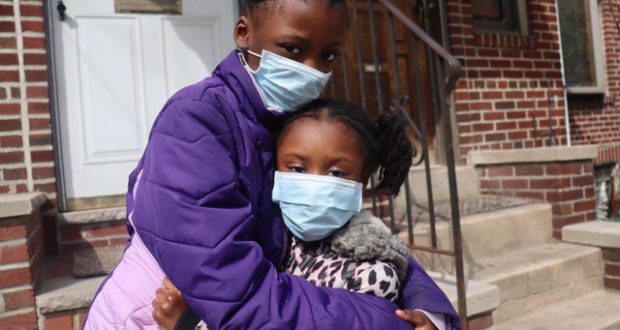By Aldon Thomas Stiles | California Black Media
Last month, Gov. Gavin Newsom announced California awarded $38 million in grants to 12 community-based organizations working to combat homelessness among youths and young adults in the state. The governor’s office says the grants are part of a $14 billion ongoing commitment to end homelessness in the state.
The funds, distributed through the Homeless Youth Emergency Services and Housing Program, will be used to assist young people who are facing housing insecurity or are currently unhoused in 12 different counties.
“These grants will provide relief and emergency support to young people across California experiencing homelessness, who are too often left in dire situations to fend for themselves,” said Newsom.
“We’re providing immediate aid for those living on our streets – bringing resources and services directly to young people in need and helping them onto a path towards a stable future,” the governor continued.
The funds will also go toward providing “mental health support with crisis intervention and stabilization services,” according to Newsom’s office.
About a quarter of California’s Homeless population suffers from severe mental illness, according to the California Department of Public Health.
Newsom is also proposing special courts to adjudicate cases involving mental health involving unhoused people across the state.
“There’s no compassion stepping over people in the streets and sidewalks,” Newsom said at a press briefing earlier this month. “We could hold hands, have a candlelight vigil, talk about the way the world should be, or we could take some responsibility to implement our ideas. That’s what we’re doing differently here.”
“This funding represents an important lifeline in protecting some of the most vulnerable members of our communities,” said California Governor’s Office of Emergency Services (CalOES) Director Mark Ghilarducci. “Through the partnership with these community-based organizations we are able to provide meaningful support and change lives.”
According to the California Homeless Youth Project, 200,000 Californians under the age of 18 are homeless for one or more days during the year.
“Addressing youth homelessness takes a village,” said Business, Consumer Services and Housing Agency Secretary Lourdes Castro Ramírez. “This is why this investment in community-based organizations that make up the village and provide bridges of support to young people is an important part of our efforts to prevent and end homelessness.”
Advocates for homeless youth say there are many factors that can lead to youth homelessness, including addiction and hostile reactions from community members about a young person’s social identity.
“Youth overwhelmingly cite family conflict and breakdown — commonly abuse or neglect, alcohol or drug addiction of a family member, pregnancy, and rejection over sexual orientation — as the major reasons for their homelessness or episodes of running away,” reads the California Coalition for Youth website.
The organizations receiving the funds are: Bill Wilson Center (Santa Clara County); Center for Human Services ( Stanislaus County); Community Human Services (Monterey County); Interface Children & Family Services (Ventura County); Larkin Street Youth Services (San Francisco County); Orangewood Foundation (Orange County); Redwood Community Action Agency (Humboldt County); Ruby’s Place (Alameda County); San Diego Youth Services (San Diego County); Volunteers of America Los Angeles (Los Angeles County).Waking the Village (Sacramento County); and Women’s Center – Youth & Family Services (San Joaquin County)
Newsom also announced his administration is allocating more than $116 million in funding to seven different “Homekey” projects as a part of the governor’s effort to provide housing for homeless people.
Newsom’s pandemic-oriented homelessness program, called Project Roomkey, will continue to receive support from the federal government as well. The state-run initiative converts hotels and other facilities into temporary housing for homeless people.
A companion program, Project Homekey, provides funding to create permanent housing for formerly unhoused people to counties, cities, local councils and other government authorities.
“Continued support from FEMA will allow us to extend Project Roomkey to get more people off the streets and into shelter,” the governor said. “Since the start of the pandemic, California has moved with unprecedented speed, helping more than 50,000 homeless individuals.”
Last month, California’s junior U.S. Sen. Alex Padilla introduced a bill proposing a nearly $532 billion federal investment over 10 years into tackling California’s and the nation’s twin homelessness and housing affordability crises.
Speaking at a Project Homekey site in Sacramento called La Mancha Way Apartments, Padilla, a Democrat, said, the legislation titled “The Housing Act for All” would provide funding for both existing programs and experimental initiatives.
“Every person has a right to the dignity and security of housing,” said Padilla. “It’s going to take all levels of government working together to rebuild a more inclusive and equitable society for all. The legislation is an opportunity to invest and align resources in expanding affordable housing and strengthening proven solutions.”
 Westside Story Newspaper – Online The News of The Empire – Sharing the Quest for Excellence
Westside Story Newspaper – Online The News of The Empire – Sharing the Quest for Excellence





